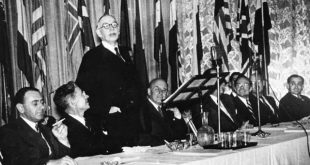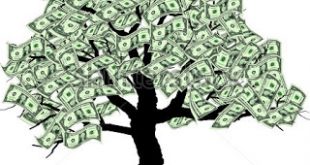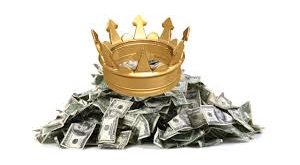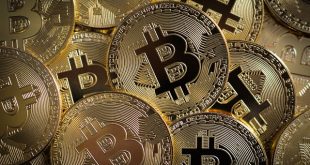It is 2.30 am, and I can't sleep. Today I must file my final piece for American Express's FXIP blog, which is being mothballed. Writing for that blog has been my main source of income for the last four years. Once it is gone, my income will once again become precarious and inadequate, as it has been all too often in the past. Hence my sleeplessness.To be perfectly honest, I'm not sorry that the blog is closing. I've done some interesting work for it, and learned a lot. And it has been a...
Read More »Hitting the wall
It is 2.30 am, and I can't sleep. Today I must file my final piece for American Express's FXIP blog, which is being mothballed. Writing for that blog has been my main source of income for the last four years. Once it is gone, my income will once again become precarious and inadequate, as it has been all too often in the past. Hence my sleeplessness.To be perfectly honest, I'm not sorry that the blog is closing. I've done some interesting work for it, and learned a lot. And it has been a...
Read More »Keynes and the death of capitalism
In a recent article for the New Statesman, the economics commentator Grace Blakeley makes an extraordinary claim. Writing about the origins of the IMF, she says: Seventy-five years have passed since these international financial institutions were created in Bretton Woods, New Hampshire, in 1944. Back then, delegates sought to tame the power of international finance, the growth of which helped to cause the 1929 Wall Street Crash and the ensuing Great Depression. JM Keynes – who led the...
Read More »An XRP Illusion
Here is a Public Service Announcement.Since @Galgitron, who I think is certifiably insane, has called for the XRP Army to deprive me of income by spamming the adverts on Forbes, I have decided to write future posts about XRP here on Coppola Comment. Moving to Coppola Comment negates accusations that I make money from posting what Ripplers call "FUD" on Forbes. Coppola Comment is widely read, but certainly doesn't have the reach of Forbes. There are no adverts here and I don't get paid for...
Read More »Some governments really are like households
In my last post, I said that the fact that a government can buy anything that is for sale in its own currency is not sufficient to confer monetary sovereignty. A country which is dependent on essential imports, such as foodstuffs and oil, for which it must pay in dollars is not monetarily sovereign. Some people disputed this on the grounds that such a country could earn the dollars it needs through exports. So I thought I would write a post discussing how realistic this is in...
Read More »The myth of monetary sovereignty
How many countries can really claim to have full monetary sovereignty? The simplistic answer is "any country which issues its own currency, has free movement of capital and a floating exchange rate." I have seen this trotted out MANY times, particularly by non-economists of the MMT persuasion. It is, unfortunately, wrong. This is a more complex definition from a prominent MMT economist: 1. Issues its own currency exclusively 2. Requires all taxes and related obligations to be...
Read More »Brian Romanchuk — Book Excerpt: Financial Assets Matter, Not Money
If we abolish money from economic theory, what replaces it? The answer is: financial assets. Although this might be viewed as a superficial change, there are important implications. In particular, the central bank can manipulate the amount outstanding of some types of financial assets, but it cannot control all of them. We end up with a more realistic view of central bank power. They no longer control “money” and hence all commerce, rather they are reduced to worrying about setting interest...
Read More »Steve Roth — Four Definitions of Money. All Correct.
Understanding what we mean by the most important word in economics. The meaning of ordinary language terms is relative to use in context. Conversely, technical terms are defined operationally. The same sign can be used for different technical terms, although such use is discouraged as confusing, but not in the same context, where only one operational definition applies.Unfortunately, economics often employs ordinary language terminology with specifying the meaning operationally. Confusion...
Read More »Arithmetic for Austrians
This piece grew from a number of conversations with people of Austrian economic persuasion, mostly Bitcoiners and goldbugs (which these days seem mysteriously to have converged). I thought of calling this "Monetarism for goldbugs", but decided to preserve the mathematical slant of the previous pieces in this series. But it's monetary arithmetic, of course. And as Austrians tend to obsess about "sound money", it is specifically sound monetary arithmetic. (Note: Someone has pointed out on...
Read More »Michael Hudson — Origins of Money and Interest: Palatial Credit, not Barter
Neolithic and Bronze Age economies operated mainly on credit. Because of the time gap between planting and harvesting, few payments were made at the time of purchase. When Babylonians went to the local alehouse, they did not pay by carrying grain around in their pockets. They ran up a tab to be settled at harvest time on the threshing floor. The ale women who ran these “pubs” would then pay most of this grain to the palace for consignments advanced to them during the crop year. These...
Read More » Heterodox
Heterodox







